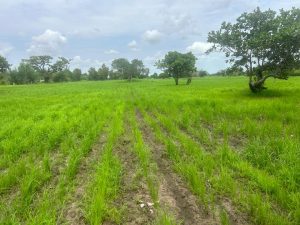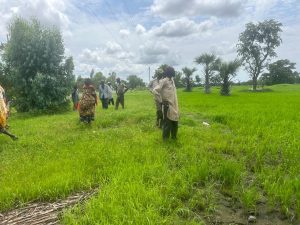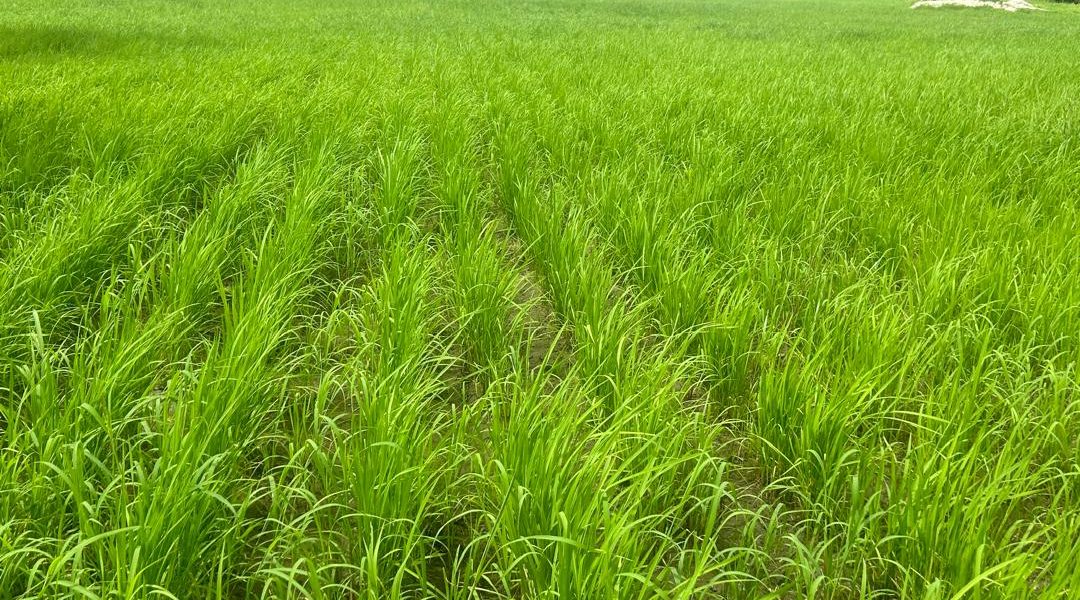The Resilience of Organizations for Transformative Smallholder Agriculture Project (ROOTS) is playing a vital role in revolutionizing the agricultural sector in The Gambia. One of its key focuses is enhancing the rice and vegetable value chains, which are crucial for food security and the livelihoods of thousands of smallholder farmers. Through targeted interventions, ROOTS is improving every stage of these value chains—from production and processing to marketing and distribution—ultimately increasing productivity, reducing losses, and boosting incomes for farmers.
Improving Rice Production
Rice is a staple food in The Gambia, and its production is central to the country’s agricultural strategy. However, traditional rice farming methods have often led to low yields, inadequate water management, and post-harvest losses. ROOTS is addressing these challenges by introducing modern farming techniques and supporting infrastructure development.
High-Yield Rice Varieties
One of the key interventions by ROOTS has been the introduction of high-yield and climate-resilient rice varieties. These varieties are better suited to The Gambia’s changing climate, requiring less water and producing higher yields. By providing farmers with access to these improved seeds, ROOTS is helping to increase rice production across the country.
Water Management and Irrigation
Efficient water management is critical for successful rice farming. ROOTS has invested in the construction of irrigation systems that ensure a consistent water supply during the growing season. These systems not only improve crop yields but also reduce the reliance on unpredictable rainfall, making rice farming more resilient to climate change.


Enhancing the Vegetable Value Chain
Vegetable farming is another significant contributor to food security and income generation in The Gambia, especially for women farmers. However, the vegetable value chain has been plagued by issues such as limited access to quality seeds, poor storage facilities, and inadequate market linkages. ROOTS is addressing these challenges through a holistic approach.
Access to Quality Seeds and Inputs
ROOTS has facilitated access to high-quality seeds and essential agricultural inputs for vegetable farmers. By partnering with seed suppliers and agricultural input dealers, ROOTS ensures that farmers receive the necessary tools to boost their productivity. This intervention has led to a significant increase in the quantity and quality of vegetables produced.
Post-Harvest Handling and Storage
One of the critical areas where losses occur in the vegetable value chain is during post-harvest handling and storage. ROOTS has introduced improved storage facilities and trained farmers on best practices for handling their produce after harvest. These measures have significantly reduced post-harvest losses, ensuring that more vegetables reach the market in good condition.
Strengthening Market Linkages
Access to markets is crucial for the profitability of vegetable farming. ROOTS has worked to strengthen market linkages by connecting farmers with buyers and establishing farmer cooperatives. These cooperatives help farmers negotiate better prices and ensure that they have a reliable outlet for their produce. Additionally, ROOTS has supported the development of local markets and processing facilities, allowing farmers to add value to their products before selling them.
Impact on Farmers’ Livelihoods
The combined efforts of ROOTS in enhancing the rice and vegetable value chains have had a profound impact on the livelihoods of smallholder farmers in The Gambia. By increasing productivity, reducing losses, and improving market access, ROOTS has helped farmers achieve higher incomes and improved food security. The focus on women and youth in these interventions has also ensured that the benefits of the project are widely shared across communities.
Conclusion
The ROOTS project is making significant strides in transforming The Gambia’s rice and vegetable value chains. Through targeted interventions in production, water management, post-harvest handling, and market access, ROOTS is helping to build a more resilient and prosperous agricultural sector. As The Gambia continues to face the challenges of climate change and food insecurity, the successes of the ROOTS project offer a model for sustainable agricultural development.


